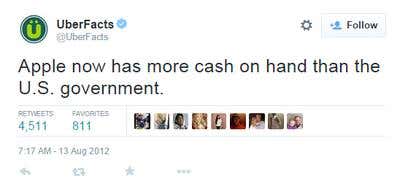Imagine going back in time to the days before the Internet was made available—a time when information was there, but not as easily accessed; when people got their information via print, traditional media, or word of mouth.
What if, in this scenario, the sources of information acted the same way that present online content writers did? A lot of them seem to be in an eternal hurry to print something out or pass on information to everyone who passes by on the street. Maybe certain groups set up platforms or spaces where only a select few can get the information they’re sharing—for a fee. Some may even find their own corners where they whisper phrases like “Hey, did you know about this baby halfway across the world? What he did will blow your mind!” to get the attention of passers-by. Some may even use photos and music to get people to listen. What’s sure is that all of them need to reach a certain number of listeners—a quota of sorts. Most would be willing to accomplish this even if they had to distort facts, misattribute quotes to the wrong people, or create fake surveys.
Sounds ridiculous? Maybe. But yet, more and more online writers are leaning towards sacrificing accuracy and quality for the sake of getting more clicks and generating more site visits. While the Internet is still the best source of information today, it's getting harder to wade through the muck as it has also become a dump site for over-hyped marketing collateral, misleading facts, and misappropriated quotes.
Here’s a list of questions online content writers should always ask themselves after finishing a draft:
1. Did you plagiarize?
Control-C. Control-V.
Copying something from the Internet these days takes but a few keystrokes, a tight deadline, and a misguided concept of content creation. Producing anything online is sometimes treated like a chore, so much so that lifting entire sentences and paragraphs in verbatim without quoting the original author has become so commonplace, many assume it’s proper.
Plagiarism, of course, is just an easy form of stealing ideas from someone without attributing it to them. In the scenario mentioned above, it would be similar to telling people you have these big thoughts, while the original thinker remains unaware of the theft.
The answer to this question should always be NO. Always try to come up with something original.
2. Did you present facts in the proper context?
Online users are already swimming in supposed snippets of “facts” that are, well, not really based on fact. Popular site UberFact once tweeted that Apple has more cash on hand than the U.S. government. In an article, Buzzfeed noted how its writer Andrew Kaczynski tweeted that this fact is inaccurate. Since then, UberFact has changed its tweet to provide context. Remember, a single word or phrase can provide a whole new meaning when writing. Always provide context, especially when dealing with facts.

source: UberFacts Twitter account

source: UberFacts Twitter account
3. Did you cite and protect your sources?
Online content creators can take a hint from Journalism school when it comes to quoting people and mentioning their names in articles. Remember that it is important to provide context when it comes to including direct quotes in articles. Were these words written in an academic paper? Was it written as a statement? Was it attributed as hearsay? Sources are humans, too. In the same way that you would not want to be quoted in a newspaper for something you said on a drunken night without an explanation, online sources should be afforded the same privilege.
On another note, there are also some sensitive topics that you may want to comment and write about that involve mentioning names like those of crime victims and perpetrators, grieving suicide families, or online scandal victims. Journalists follow a code of ethics that aim to minimize damage to innocent people—maybe it’s time for online content writers to follow suit.
4. Did you take advantage of the Web’s rich multimedia options?
What makes the Internet such a rabbit hole for readers is its capacity to present content in various forms. Content is king, of course, but that doesn’t mean you can’t make the process all the more enjoyable for readers. Enrich the readers’ minds with short tutorials about the topic you’re explaining. Break the monotony with related videos and links. You can even create a shareable graphic to make it easier to understand and spread around. The Internet is called a treasure trove of information for a reason. Dig into it.